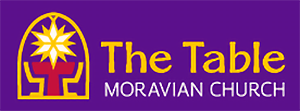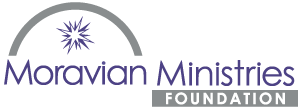Nearly 1/4 of North Carolinians in our area are struggling with medical debt that is far beyond their ability to pay. Even for a family with a decent wage and basic health insurance, a relatively minor illness or accident can end up with tens of thousands of dollars in medical bills - even after insurance. If you cannot pay these immediately, it won't be long before they are referred to a collection agency. What can you do?
First, don't call us! We have no mechanism or funding to deal with a specific person's medical debts. The Debt Jubilee Project is a "wholesale" approach to dealing with medical debt. We raise the money to work with Undue Medical Debt to purchase large portfolios of debt at a reduced rate. While there is a specific profile for qualified debt, we do not know who the debtors are.
Here Is Practical Help From DOLLARFOR.ORG!
We are excited to let you know about another nonprofit, DOLLARFOR.ORG, which provides direct access to information and forms to receive assistance from your hospital! A recent study showed that many people with medical debt should have qualified for assistance from the hospital - but never received it because they didn't know how to apply and often were shuttled off into a high-pressure "sign up for a payment plan." Nonprofit hospitals are required to provide charity care,but the rules are loose, and in many cases they never tell individuals that they qualify for assistance.
Click on the link below and fill out the form; DOLLARFOR will connect you to the exact assistance rules for your hospital and even gvie you the proper forms to apply! They can even provide advocacy assistance if you need help.
Go visit DOLLARFOR.ORG
Many hospitals require that you apply for assistance within 240 days of the billing. DO NOT WAIT!
So What Can You Do If You Have Major Medical Expenses?
 Here are some general guidelines for dealing with your medical expenses.
Here are some general guidelines for dealing with your medical expenses.
First, do not simply ignore medical bills! They will not go away.
Do not pay bills until after insurance, Medicare, or Medicaid has paid, even if you can afford to. It is not uncommon to receive bills from individual providers (such as ambulance companies) which have not been submitted to your insurance. If that appears to be the case, ask the company to file with your insurer, and then wait for the insurance company to pay their share. In most cases, the insurer has a negotiated lower payment for your service. In some cases you will have to submit the bill to insurance yourself. Even when the bill has been submitted to insurance, sometimes the provider will still send you a bill for the full amount. If you pay more than you should at this stage, you will find it very difficult if not impossible, to ever recover the amount!
Make sure the provider is billing you the negotiated amount agreed between them and the insurer, not the full price.
If the insurer has denied the claim or paid less than you think it should, appeal the claim. Many times insurers will deny a claim initially because they do not have enough information or the procedure has been coded wrong in billing. It is not uncommon for an appeal to be successful, especially if you work with the provider to make sure they have enough information.
Often insurers will pay less or deny the claim if the provider was "out of network." You should appeal this, since in some circumstances (emergency situation where no in-network provider was available, for example) the insurer may be required to pay. In non-emergency situations, it is always best to clarify that the provider is in-network, or has been pre-approved.
After insurance has paid their share, you are responsible for the balance. Contact the provider or the collection agency to propose a payment plan that will work with your income.
DO NOT sign a judgment until you are sure that you have negotiated the lowest possible amount. Once a judgment is signed, the amount is fixed and the hospital can collect for twenty years in NC!
If the amount is simply beyond your ability to pay (such as a bill from an extended stay in ICU) you must take the initiative to go to the billing department and ask what they can do to help you. Be sure to come prepared with information about your income and existing debts. Many hospitals are "not-for-profit" and are required to do a certain amount of charity work to maintain that status. There is a lot of flexibility on these enormous bills, and in many cases, the hospital can reduce the bill substantially. Press them on the issue and be insistent. The earlier you do this the better. Assistance decisions are often arbitrary and the basis for the decision opaque. Ask for a detailed explanation. If you do not take this step, and simply ignore the bills, the hospital might be less likely to help you later after collection action has been taken.
If the account has already gone to a collection agency, take the initiative to propose a reasonable payment plan to them. Be aware that "write-offs" of the debt will be reported to credit agencies and may even have tax implications. A "write-off" is regarded by the IRS as cash income for you, and will be taxable. That is why when Debt Jubilee Project purchases and forgive s debt, it is reported as a gift rather than a write-off.
If an aggressive collector threatens legal action, you should find an attorney for advice on your specific case and to understand your rights and options. If you cannot afford a private attorney, you should seek free help from Legal Aid NC.













